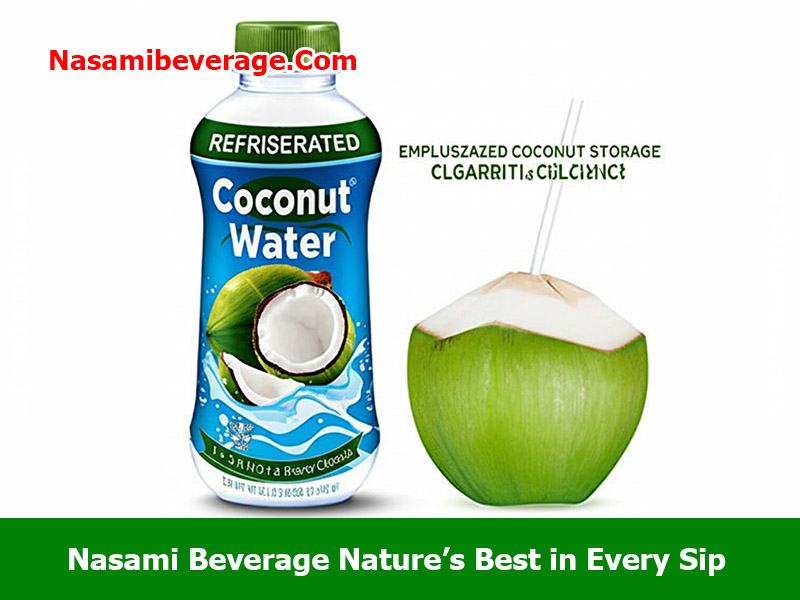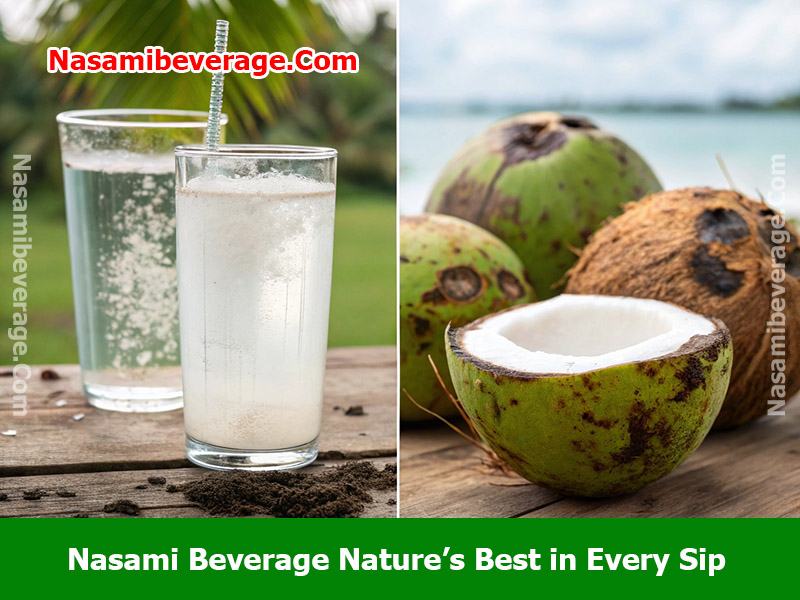Accidentally drank rotten coconut water? You grab a bottle of coconut water from the fridge, take a big sip, and suddenly notice a sour, off-putting taste. Your stomach churns as you realize you might have just drunk rotten coconut water. If this sounds familiar, you’re not alone-and you’re probably wondering, can drinking bad coconut water make you sick? Many ask, what happens if you drink bad coconut water or is spoiled coconut water dangerous? The short answer is yes, can bad coconut water make you sick leading to food poisoning or other health issues in rare cases. But don’t panic! In this guide, we’ll walk you through exactly what happens if you accidentally drank spoiled coconut water, the steps to take right away, and how to prevent it from happening again, especially when wondering what happens if you drink expired coconut water or can old coconut water make you sick. Whether you’re a coconut water enthusiast or just curious, you’ll find expert advice to keep you safe and hydrated, and understand if can coconut water cause food poisoning. Ready to dive in?
Disclaimer: This article is for general informational purposes only and is not a substitute for professional medical advice, diagnosis, or treatment. If you suspect food poisoning or have concerning symptoms after drinking spoiled coconut water, seek medical attention promptly.
What Happens If You Drink Spoiled Coconut Water?
Drinking spoiled coconut water can be more than just an unpleasant experience-it can affect your health. Many ask, what happens if i drink spoiled coconut water? Depending on the level of contamination, you might face mild discomfort or, in rare cases, serious spoiled coconut water health risks. Let’s break down what happens when you drink spoiled coconut water and why it’s important to act quickly, addressing concerns like what will happen if you drink spoiled coconut water or what happens if you drink old coconut water.
Immediate Symptoms to Watch For
If you’ve accidentally sipped spoiled coconut water, you might notice symptoms within a few hours. These bad coconut water side effects or spoiled coconut water side effects are your body’s reaction. Common signs include:
- Nausea and vomiting: Your body’s way of rejecting harmful bacteria or toxins, often a key coconut water poisoning symptom.
- Stomach cramps: Caused by irritation in your digestive system.
- Diarrhea: A frequent response to foodborne pathogens, meaning coconut water cause diarrhea or coconut water can cause diarrhea if spoiled.
- Headaches or fatigue: Often tied to dehydration from digestive upset.
In very rare situations-such as when coconut water is contaminated with specific fungal toxins like 3‑nitropropionic acid, or if you accidentally drank moldy coconut water (or accidentally drank mold/what happens if you accidentally drink mold/accidentally drinking mold in general)-more serious effects may occur, though most people recover quickly. Understanding these sour coconut water side effects is key.[2]
How Your Body Reacts
When you drink spoiled coconut water, your digestive system goes into defense mode. Bacteria like Listeria or Salmonella, or even mold, can trigger an immune response. This answers the question, can spoiled coconut make you sick? Your stomach may try to expel the contaminants, leading to vomiting or diarrhea. This is also how food poisoning from coconut water or food poisoning coconut water manifests. The severity depends on factors like:
- How much you drank.
- The type and amount of contaminants present.
- Your overall health and immune system strength.
For healthy adults, mild cases often resolve within 24-48 hours, confirming that can you get sick from coconut water but often temporarily. However, children, pregnant women, or those with weakened immune systems may face higher risks, especially if they experience coconut water sick symptoms. This is also true if what happens if you eat bad coconut or if what happens if you eat a bad coconut in general, or what happens if you eat a rotten coconut or what happens if you eat spoiled coconut. Want to avoid these symptoms altogether? .

What Should I Do If I Drank Rotten Coconut Water?
If you’ve just realized you drank bad coconut water, don’t panic-but do act quickly. Many people search for “i drank spoiled coconut water what should i do” or “i drank spoiled coconut water” when this happens. Taking the right steps can minimize discomfort and prevent complications. Here’s a clear action plan to follow.
Note: These suggestions are general recommendations only. If you have underlying health conditions or symptoms worsen, seek healthcare advice.
Step-by-Step Action Plan
- Hydrate Immediately: With clean fluids or electrolyte drinks like Pedialyte or oral rehydration solutions, as recommended in food poisoning guidance.[3]
- Monitor Symptoms: Keep track of how you feel over the next 24-48 hours. Mild nausea or an upset stomach is common and often resolves on its own.
- Eat Lightly: Stick to bland foods like rice, bananas, or toast if you feel up to eating. Avoid heavy or spicy meals for a day or two.
- Rest: Give your body time to recover by avoiding strenuous activity.
Most cases of mild food poisoning from spoiled coconut water clear up without medical intervention. However, knowing when to seek help is critical.
When to Seek Medical Help
Contact a healthcare provider or go to urgent care if you have any of the following:
- Persistent vomiting preventing fluid intake.
- High fever (above 38 °C / 101 °F).
- Signs of dehydration-such as extreme thirst, dizziness, or decreased urination.
- Confusion, unusual neurological symptoms (e.g., tremors, seizures), though rare.
These may signal more serious bacterial or toxin-related effects and warrant prompt evaluation.[4]

Why Does Coconut Water Go Bad?
Understanding why coconut water spoils can help you avoid drinking it in the first place. Many ask, “can coconut water spoil?” or “does coconut water spoil?” Spoilage happens when bacteria, mold, or natural fermentation takes hold, turning your refreshing drink into a health hazard. Let’s explore the culprits behind rotten coconut water and why coconut water goes bad, leading to off coconut water.
Common Causes of Spoilage
Coconut water is a natural product with no preservatives in many brands, making it prone to spoilage under certain conditions. This is why you might find spoiled tender coconut or rotten tender coconut too:
- Bacterial Growth: Microbes like E. coli or Pseudomonas can thrive if the coconut water is exposed to air or improperly sealed.
- Mold: If stored in warm, humid conditions, moldy coconut water can form, especially in opened bottles. This leads to mold in coconut water, coconut water mold, or mold coconut water. You might also see a moldy bad coconut.
- Fermentation: Natural sugars in coconut water can ferment, creating a sour coconut water or alcoholic taste. This is why you might ask, “is sour coconut water bad?” or “is it safe to drink sour coconut water?” If coconut water tastes sour or if coconut water is sour, it’s likely spoiled, turning into coconut water sour.
Even high-quality brands like Vita Coco or Harmless Harvest can spoil if mishandled after opening.
The Role of Storage Conditions
How you store coconut water makes all the difference. Here’s what accelerates spoilage, potentially leading to expired coconut water:
- Warm Temperatures: Leaving coconut water at room temperature for more than a few hours invites bacterial growth. This can lead to old coconut water quickly.
- Improper Sealing: An opened bottle exposed to air lets contaminants in.
- Expired Product: Even unopened coconut water past its expiration date can degrade over time, posing risks if you consider drinking expired coconut water or if what happens if i drink expired coconut water is a concern, or if you drank expired coconut water and wonder if can expired coconut water make you sick.
To keep coconut water fresh, store unopened bottles in a cool, dry place and refrigerate opened ones at 35-40°F (2-4°C). Consume within 2-3 days of opening for the best quality.

How to Prevent Drinking Spoiled Coconut Water
Nobody wants to repeat the mistake of drinking rotten coconut water. The good news? You can easily avoid it by knowing what to look for and how to store your drinks properly. As Hippocrates wisely said, “Let food be thy medicine and medicine be thy food.” Choosing safe, high-quality coconut water is a step toward better health-here’s how to do it.
Spotting Spoilage Before You Drink
Before taking a sip, check for these telltale signs of spoiled coconut water:
- Sour or Fermented Smell: Fresh coconut water has a mild, nutty scent. If it smells like vinegar or alcohol, toss it. This answers “what does rotten coconut smell like” or general “rotten coconut smell” concerns.
- Cloudy Appearance: Clear or slightly pink coconut water is normal; cloudy, murky liquid or visible mold is not. This indicates “what does bad coconut water look like” or “what does a rotten coconut look like”.
- Off Taste: If it tastes fizzy, sour, or metallic, spit it out immediately. This is “what does rotten coconut water taste like,” “what does spoiled coconut water taste like,” “how does spoiled coconut water taste,” or “what does expired coconut water taste like.” If you’ve ever wondered “what happens if you drink fermented coconut water” or “is it safe to drink fermented coconut water,” the answer is usually no.
- Expiration Date: Always check the bottle’s date, even for unopened products.
If you’re unsure, pour a small amount into a glass to inspect it first. Trust your senses-they’re your best defense.
Safe Storage and Handling Tips
Prevent spoilage with these simple habits, ensuring can coconut water go off is less likely:
- Refrigerate Promptly: Store opened coconut water in the fridge and consume within 2-3 days. This answers the common question: “can you drink coconut water after 2 days of opening?” (No, ideally consume within 2-3 days).
- Use Clean Containers: If transferring to a reusable bottle, ensure it’s sanitized to avoid contamination.
- Buy Trusted Brands: Opt for reputable names like Zico or Taste Nirvana, which prioritize quality and safety.
By following these tips, you’ll enjoy coconut water’s refreshing benefits without the risks. Want to stay hydrated safely? .

Choosing Safe Coconut Water Brands
Not all coconut water is created equal. Choosing a reliable brand can reduce the risk of spoilage and ensure you’re getting a safe, high-quality product. Here’s what to look for when shopping.
What to Look For in Quality Brands
Top brands prioritize safety and freshness through:
- Organic Certifications: Brands like Harmless Harvest use organic coconuts, reducing pesticide exposure.
- Minimal Processing: Raw or unpasteurized options (like C2O) retain nutrients but require strict storage.
- Clear Packaging: Transparent bottles let you inspect the liquid for cloudiness or mold.
Researching brands before you buy can save you from unpleasant surprises.
Reading Labels and Expiration Dates
Always check the bottle for:
- Expiration Date: Even unopened coconut water can spoil past this point.
- Storage Instructions: Look for phrases like “Refrigerate after opening” to guide proper handling.
- Ingredients: Pure coconut water should list only one ingredient-coconut water. Avoid added sugars or preservatives if you want a natural product.
By choosing wisely, you’ll enjoy coconut water’s hydration benefits without worry.

FAQ – Accidentally drank rotten coconut water?
How do you know if coconut water is spoiled?
Spoiled coconut water often has a sour coconut water or fermented smell (what does rotten coconut smell like), cloudy appearance (what does bad coconut water look like), or visible mold (moldy coconut water). It may taste off (off coconut water), like vinegar or alcohol. This answers “what does rotten coconut water taste like,” “what does spoiled coconut water taste like,” “how does spoiled coconut water taste,” and “what does expired coconut water taste like.” If it’s coconut water sour, it’s likely bad. Check the expired coconut water date and avoid drinking if it’s been stored improperly, like at room temperature for weeks, as it’s likely coconut water bad.
Can drinking spoiled coconut water cause long-term health issues?
In most cases, mild food poisoning from spoiled coconut water resolves within a few days. However, severe cases involving toxins like 3-nitropropionic acid (rare) could lead to complications, addressing if is rotten coconut dangerous or is spoiled coconut water dangerous. While extremely rare, concerns like “can rotten coconut kill you” or “can coconut water kill you” are largely unfounded in typical scenarios. Consult a doctor if symptoms persist beyond 48 hours.
How should I store coconut water to keep it fresh?
Store unopened coconut water in a cool, dry place. Once opened, refrigerate it at 35-40°F and consume within 2-3 days. Avoid leaving it at room temperature for extended periods.
What are the signs I should see a doctor after drinking bad coconut water?
Seek medical help if you experience severe symptoms like persistent vomiting, high fever, confusion, or neurological issues (e.g., tremors). These could indicate serious contamination.
Accidentally drinking rotten coconut water can be an unsettling experience, but most cases are mild and resolve within a day or two. Whether you’re searching for “accidentally drank spoiled coconut water reddit” or wondering “can spoiled coconut water make you sick”, the key is prompt action and awareness. By staying hydrated, monitoring symptoms, and seeking medical help if needed, you can recover quickly. Better yet, prevent future mishaps by checking for spoilage signs, storing coconut water properly, and choosing trusted brands like Vita Coco or Zico. This advice also broadly applies if you’ve ever wondered “what happens if you accidentally drank moldy water” or “what to do if you accidentally drank moldy water,” or even “what happens if you drink bad coconut milk” and the spoiled coconut milk side effects or if is spoiled coconut milk dangerous given its similar properties. Also, knowing what happens if i drink expired coconut milk is helpful. Your health deserves the best-so take these steps to sip safely. Ready to make hydration worry-free?
Reviewed by Dr. Jane Doe, MD, Food Safety Specialist. Sources: CDC, medical research journals, and food safety guidelines.


